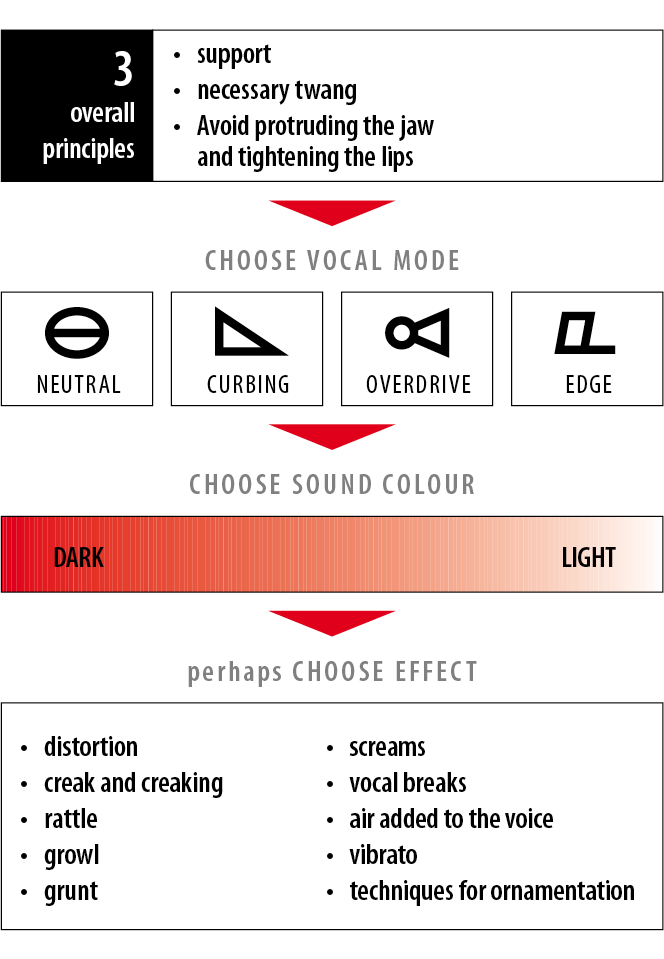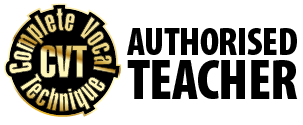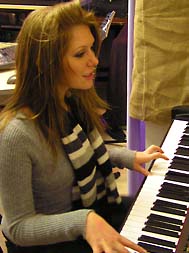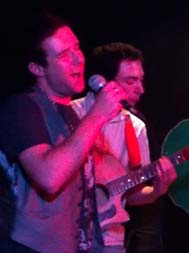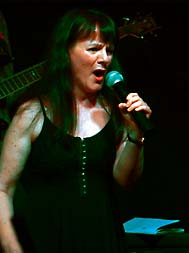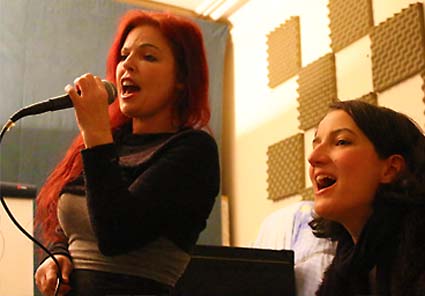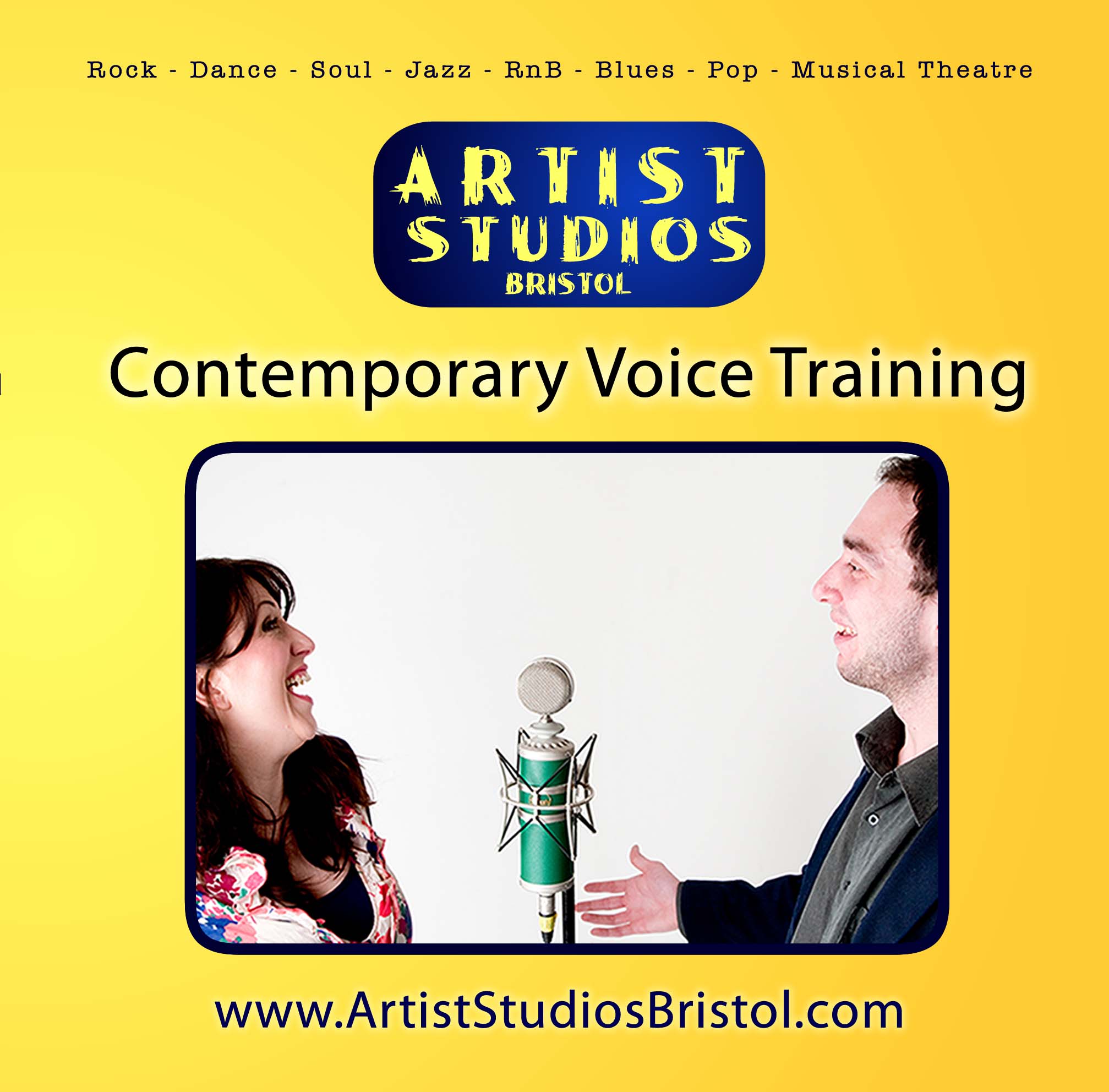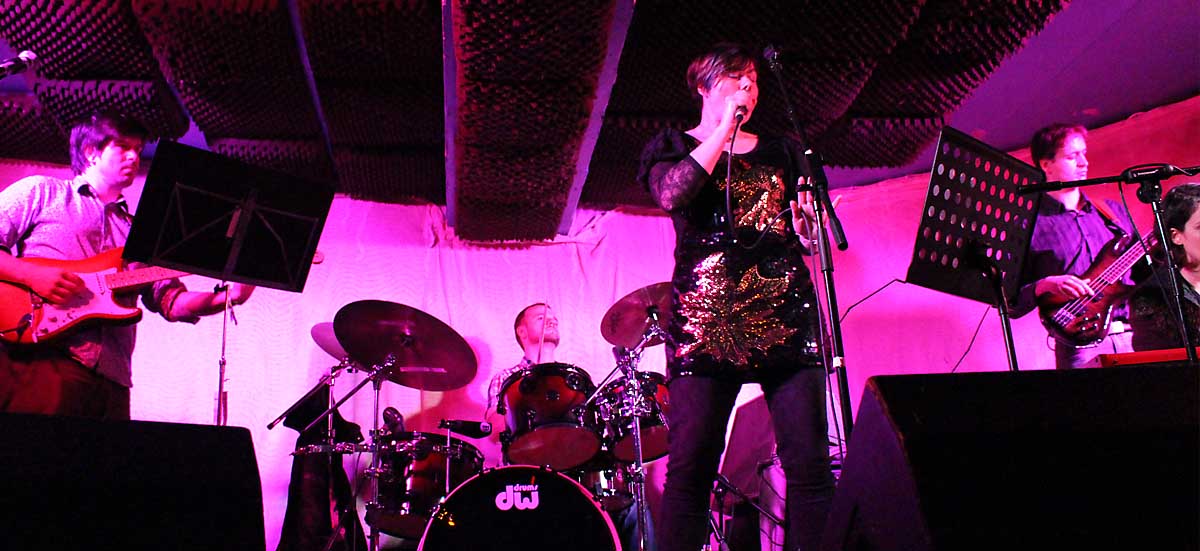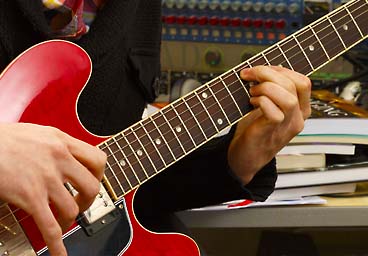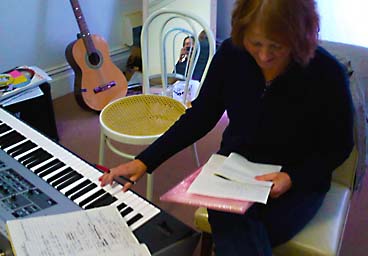Resources for Singers
Become your own teacher!
There are lots of different ways to train your singing and so many different opinions, words of advice and ideas available on the internet. Its easy for many singers to get confused with what does and doesn't work! I've compiled this page for anyone interested in reading more on the subject and to help those who want to teach themselves.
For online advice, advantage of our online Facebook CVT community, open to everyone.
Our Resources page is intended to provide a good start to newcomers and new information for singers looking to expand on the basics. Don't forget, theres no substitute for good voice training as all exercises should be specific to you as an individual, for instance, what works for one singer may not work for another. However it is possible to become your own teacher with the right information.
If you'd like to ask about more details or get some advice on your voice, or even get a plan on how you could develop your singing, please just send me an email (Theres no charge for free advise!) or book a Skype session.
- Who can benefit from training their singing technique?
- An overview of singing.
- Expectations of a singing teacher.
- Warming up.
- Support.
- I want a 'Stronger' Voice.
- Rehearsal guidelines.
- Mindset for performance.
- How to become successful as an artist.
- Mics and mixers for singers.
- Singing with a microphone.
Singers who may experience uncontrolled constrictions that limit their volume, range, tuning, emotional expression, or singers who have suffered hoarseness but have not physically damaged their voice.
TopI created the diagram below to remind us what singing is all about.
Our goal is the bright flash in the middle when we combine technique, interpretation and music.
If we are singing only on the technique side, the sound we produce may be very efficient and easy but it could be too technical and could become uninteresting. If we are only on the interpretation side, we may be singing with too much emotion and lose control, or we may not have the ability to repeat the same sounds twice and risk getting hoarse from a lack of technique. So we've got to train our technique to be strong before we can interpret a song with our desired emotion. Then we can put it with the musical context, whether that means a full band or a simple accapella line up, amplified by the church reverb, live or on a recording. Then we have our goal.
When we are training our singing, we've got to remember that we're probably spending a lot of time in the technique bubble to establish new habits into our muscle memory. For some, that may be a bit strange in the beginning but the more you repeat the correct technique for your desired sound, the better you will be when it comes to using that sound in your singing.
I call them sounds, because different styles may use different types of voice and effects added to express particular emotions. All sounds can be produced in a healthy way with good technique.
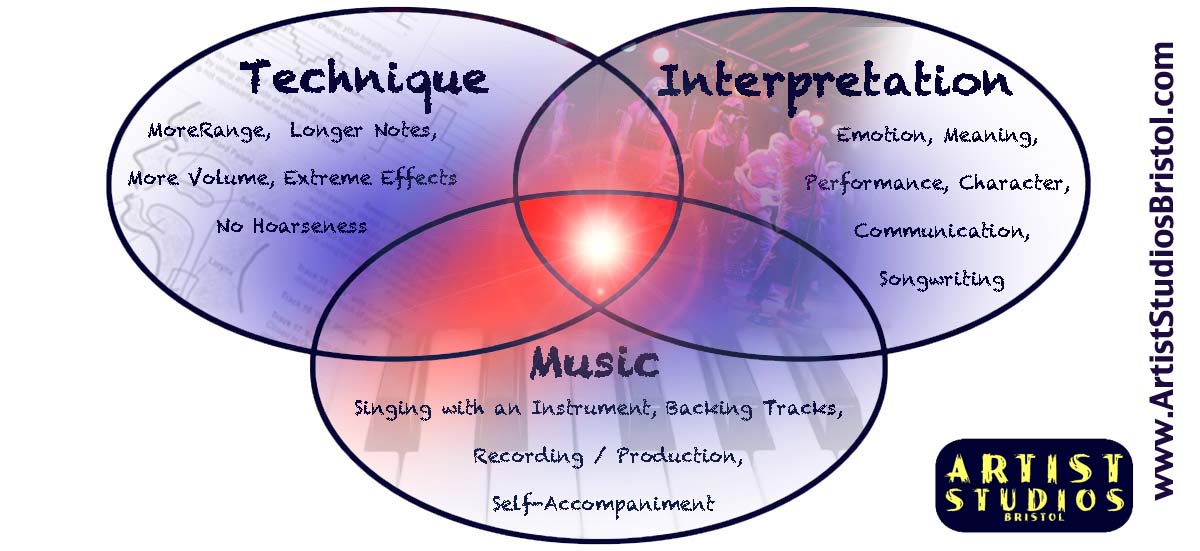 Top
Top
Every teacher can provide something different to bring out a new aspect of your singing. However there are certain things that you should expect from your teacher when taking lessons.
Purpose of your teacher:
A teacher will train good technique into your muscle memory and build your confidence.
This can be done by repeating the right sounds, being aware of the wrong sounds and by avoiding repeating any mistakes.
A teacher should not to dictate their own taste. Style is your decision.
The teachers taste in style or type of singing really doesn't matter. Whats important is that you are singing efficiently and healthily and the sound fits the musical styles that you enjoy.
A teacher should know a lot about technique.
A teacher should not just use their intuition to teach you, but have a background of technical knowledge that can be used as a toolbox for any situation.
A teacher should focus on your positive points rather than flag up any negative issues.
This is important for all levels of singer. If we are told we have a technical issue, it can become a problem for us as a singer and create a complex! Make sure your teacher doesn't bring up a list of problems you may have with your singing. They should give you solutions instead.
A teacher must focus on the process, not the goal:
The voice training process involves smaller steps to get to the goal. Don't forget that sometimes, these could be just practicing basic sounds into muscle memory, before decorating the sound with effects such as vibrato or breath. With a bit of patience, good practice and after the process has set in, you can enjoy the goal.
When teaching, we listen for the main issue to work on, which might not be your first idea, but is in your best interests.
Repetition:
The person doing things in the session is the one learning. Less talking and more doing gets results!
Detect your learning types:
A learning type is the way we best pick up information. We may be thinking logically, imaginatively, visually, we may feel it better, we may hear it better, or we may use a combination of several of these. A good communicator works out your learning type by the way you speak when you first enter the room, or by the way you sing your song.
If you don't understand an explanation, its simply because your teacher is speaking in a learning type that is different to yours. Many teachers talk about resonance and feelings, whereas some singers don't feel resonance at all.
If a technique, explanation or exercise doesn't work for you straight away, then forget it! There are other ways to work.
A teacher should ask you lots of questions so that you can learn how to become your own teacher:
If a teacher asks you questions on your voice, its not because they don't know the answer, they want to hear your opinion. Finding out how a singer sees their voice can tell a teacher a lot about the best way for you to learn and train. This way, you shouldn't need a teacher for many sessions. You will be encouraged to work out what to do yourself.
Your teacher should have a good vocal ability and be able to demonstrate the sounds you want to sing.
If all sounds can be done in a healthy way, a teacher should be able to at least demonstrate all sounds from any style.
A teacher should know their boundaries on teaching, their limitations and abilities.
Teachers are only human and their voice is always changing too. A teacher's job is to facilitate you in learning a sound. All sounds can be taught but sometimes a teacher may not be able to produce the right sound if they are tired or need to look after their own voice. Teaching long hours can be hard work!
However, if it is explained correctly, then a teacher can get you to produce the sound you want to, regardless of their own condition.
Your teacher must also be inspiring and motivating.
Which should be easy if your teacher loves singing and music as much as you do!
TopThe following suggestions are my opinions, based on my experience, learning from various techniques and by teaching several thousand singers. Please use this as a guide to form your own opinions and build a routine that works for you personally.
What is warming up?
Generally, warming up means different things to different people. Technically its a bit of a misnomer! When we warm up, we don't really increase the temperature in the throat as the vocal cords are already at body temperature, 37 degrees! So what are we actually doing when we say 'warming up'?
Some singers may need a mental warmup, some may benefit from a physical warmup but either way we are always in the process of centering our voice, that means 'to find the best sound that costs the least effort'.
We can look at this a bit like a bulls eye target. When its in the centre, we have the correct sound and its easy to do. When its on the edge of the bulls eye, there may be unintentional distortion, wavering, pitch errors or discomfort. When its off the bulls eye all together, then it's not healthy!
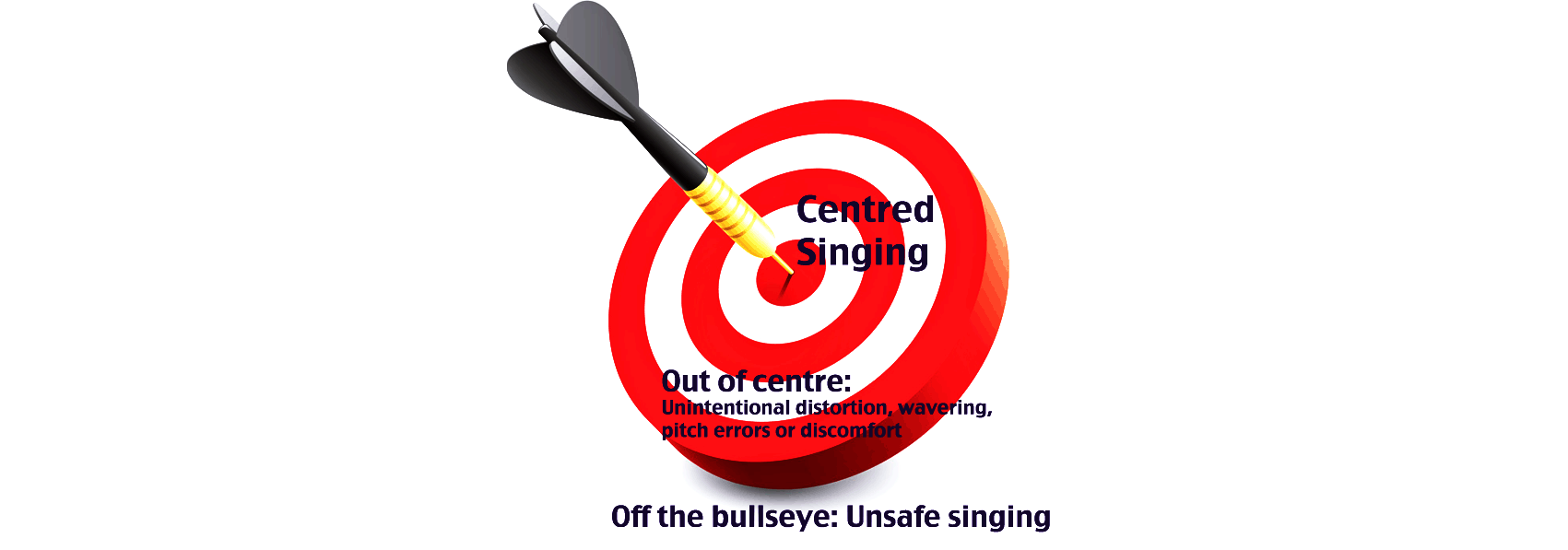
So its quite individual. Some sounds require more effort than others. For instance, if we need to sing a high note in a funk song, we may need a lot of energy to get it in the centre if we haven't done it yet. The amount of energy we have at that time depends on many external factors, such as your mood, whether you've eaten or not, how you feel about the song and even other aspects of daily life! This is now off the technical track and could be more of an open discussion where different things suit different singers.
So, lets keep it purely technical:
To warm up is about finding the 'centre' for the sound you want. (brushing up on your technique).
You can find your centre by obeying certain rules for the sound you are producing regarding volume, pitch, vowel and other aspects. To get in the centre requires repeating the sound until your muscles remember how to co-ordinate to produce it. If you've never done that particular sound before then you won't have it in your muscle memory yet and you need to go back to your training to establish it.
For instance, you might want to sing the top note in Aretha's "Think", but you've never tried it before then its going to be too new to do it in a gig! Train it first by repeating the sound until you've established it in your muscle memory. Then just before a gig, check if its there. That will give you the confidence to perform it successfully.
Therefore, preparing for performance can be more about getting into the right mindset than warming up your muscles. It may not even be necessary to do any exercises at all to 'warm up' the voice in the traditional sense, but this is highly individual so you should assess how this works for you at the time you need it.
Instead of giving my singers 'the best vocal warmup ever'(theres no such thing!). I'm will explain facts that we know from research and not make things up based on the fact that it worked once for me, or someone else before!
Check your voice
Before warming up, sing first! Just sing a line from your song to hear and feel how you are singing at that moment. Check the high notes, low notes, long notes, etc. Then, if you feel you need to centre your voice, choose from any of the following exercises which each have their own purpose and benefits.
Breathing exercises
Purpose:Heres a breathing exercise from our CD. This exercise doesn't have anything to do with the sound you want to sing.
Support exercises
Purpose:Breathe out on a long 'zzz'. Find the muscles you use to support with and feel how they move.
However, which muscles you use can be quite individual and how they move really depends on the sound you want to sing.
Siren
Purpose:
Also known as whistle register, falsetto, flageolet in the high part.The benefits of this exercise depends how you siren and it depends on what songs you are singing.
If you are sirening at the quietest volume, you're likely to be singing with partial vibration of the vocal cords. Also known as falsetto, flute register, whistle register or flageolet. This is fine in the high part of the voice (above your high C), but you should know if you are using it in the lower part as the voice functions very differently. Most importantly, its only a good warmup if you are singing using this sound in your song. Some singers might say that a siren stretches the vocal cords but this is not necessary as they are already able to stretch and if you are singing with partial vibration, they may not even stretch to their full length. So its important to know which sound you are using and what you are doing it for.
This is often the type of voice used when a singer is running through a song, marking the pitch quietly before singing it louder. Many songwriters also use this when quietly writing a song, but then find its very different when they need to sing the same pitch live on stage.
Lip trills
Purpose:
Lip trills are quite common amongst singers, but like with sirens, we may be practising partial vibration of the vocal cords which may be different to how you will be singing your song. Thats why I say its a good warm up, if you're about to sing with it in your song, otherwise its only useful for relaxing lip tension!
Scales
Purpose:
Scales should be used more as training exercises rather than warmups and are more about getting the right notes for the song you're singing. Most singers will already know how to sing a major or a minor scale even if they don't know it technically! If you're working with a more unusual song, you may want to practice new modes.However, scales are not really warmups like the other exercises in this section, because we should already be in the centre when we sing them, therefore we should already be warmed up!
One-note exercise
Purpose:
Yelling, crying, sighing and screaming can all be used to find the sound you want. Keep the note short so you don't have to focus on your support!
Warming up before a concert:
If you're warming up for a gig, or for a recording, the best warm up for you is to check you can hit all of the notes in the songs you are about to sing, in the way you want them, without any tiring out. That means, to be in the centre.
A mental preparation could be more valuable to you than a physical or vocal warmup.Top
Top
What does it mean when a singer says 'I want my singing to be stronger'?
If you can break it down into different technical building blocks, then we can get a better idea of what we want. This whiteboard brainstorm was created for a singer working with the song Fly Away by Lenny Kravitz.
 Top
Top
How do you get a perfect song?
Well, that's subjective, and down to a lot of different details. Some would say you can't get a perfect song, some would say its perfect when the technique used was the most efficient and others would say its perfect when its full of emotion! It also very much depends on you as a singer, where you are in your development and what you want to achieve.
Here is a training tool to help show what you should practice and when.
This is a guide to how we would work on learning a new song from scratch and to perfect it as much as you can. This is a logical approach to the process that session singers would use when learning a new song that they hadn't heard before. It doesn't require reading the music or learning it from a score.
 Top
Top
Preparing for performance can be more about centering your mindset than warming up muscles. Performance anxiety, stage fright and dealing with nerves can any every singer. The solution is to do the right preparation and some positive visualisation.
Self-hypnosis is a powerful tool. For instance, imagine you do what you do when singing at home in your room, but now on stage. Or, imagine there is only one person listening to your singing.
Some singers may feel self-concious about expressing their emotions on stage. Don't forget, singing is not about exposing every meaning in a song with your heart and soul, but about portraying emotions that your audience will enjoy, relate to and pay attention to. If you're becoming nervous when singing, remember that the audience do actually want to hear your voice.
In most cases, performance anxiety can be due to the risk of errors, like forgetting the words or singing off key by mistake. If you have rehearsed enough, then you will have built the confidence to safely avoid these errors. However, mistakes may still happen on stage but there's no need to pay attention to any mistakes. Mistakes are always good things, as they teach you about what we can do better! Without mistakes there is no learning. We get a bit too used to negative feedback in western schools when one is marked down for mistakes but when you're training your voice, which is such a personal thing, were not so concerned with when you get it wrong. More about when you get it right.
When do you get it right? When its the sound you wanted, for the sound you are making and that suits your ideas about your art.
TopSometimes, I meet capable singers who say things like "I wish it was a real job". If thats you, ask yourself what you are doing right now to make your wish become your reality.
To turn your dreams into daily life, you should surround yourself with people who can help you achieve what you desire.
What are the blocks, or conflicts that are stopping you from achieving your goal?
For instance, if you don't feel your voice is ready yet, then get some coaching and work out a plan of how to develop the voice you want.
If you are concerned with what other people think, then consider what you believe is right or wrong to do. You will always meet opposition from somebody, so theres no point in trying to mould yourself to other peoples expectations. I've heard many people say they were told at an early age that they can't sing, or they were singled out in their youth choir because they weren't singing the right pitch. The truth is, everyone can sing, but some of us may need some training, direction and encouragement to get good technique and therefore build confidence with our voice and perhaps remove any negative connotations about our singing.
So, create a training plan and set out some regular goals as to what you should expect to achieve. Make sure you invest your time, more than your money in the process. A lot of training and experience can be gained for free. There's never a need to take ongoing singing lessons, week after week with any teacher. A voice coach should be able to give you answers of what you should work on straight away and the results should show immediately. That doesn't mean to say you will then be able to do it consistently, that's the part that takes your time. The more you repeat your technique, the more experience you gain and the better your results will be.
If you really want to see development in your singing technique, then you should aim to put at least 5x more time into private practice for every singing lesson you take. Of course that doesn't mean to say you can't take regular singing lessons for fun, the point is more that you don't need to take regular lessons if you are given the tools to be able to train on your own. Therefore, don't be scared by singing lessons that appear more expensive than others, you will probably find you get a better deal in the long run with less frequent but more specific and complete lessons.
Training your voice continues for your whole career, but being an artist isn't all about training though, its about putting your training into practice, deciding who you are as a singer, what your image is, what music you want to sing and be known for.
If you want to sing at anything higher than an amateur level, then start to treat it like a business.
That means, keep track of your expenses and earnings, regularly check your to-do list and make sure you've ticked things off. Book your recordings, co writing sessions, film shoots, photo shoots and get in touch with those people in the industry that you want to get into. Then, keep in touch with them and regularly update them on what your plans are and what you're doing. Get a distributor, Send the A&R guy your music, send the sync publisher a new track every time he informs you about an opportunity. Get in touch with the music supervisors in TV, film and advertising. Book your gigs and let your audience find you.
And above all, never, never, never give up!
Ambition:
Here is a good 5 min checklist that you can use to keep on top of your goals. Its more than just a to do list, this is something to be done every few months about the big things you'd like to see develop in your life.
Do the same for 3 years, 5 years etc and refer to it regularly as we can easily forget great ideas.
Top